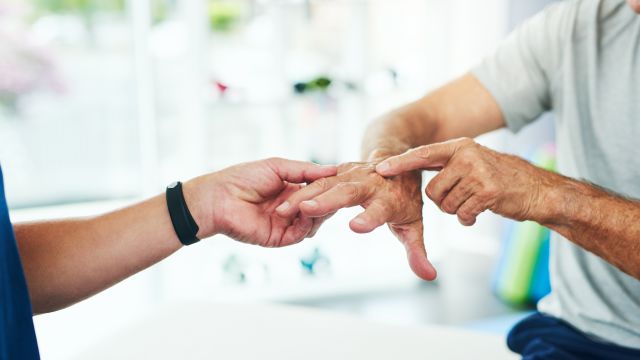If you live with rheumatoid arthritis (RA), you know that the disease can make everyday activities -- like walking, bathing and even going to the bathroom -- a struggle. But, if biologics are part of your treatment regimen, there’s some good news.
A recent study published in Arthritis Care and Research found that people with RA who took biologics are less likely to use assistive devices -- tools that make reaching, grabbing or getting around with the condition easier.
Biologics Study Breakdown
Researchers compared assistive device use among RA patients during two time periods. The first group included RA patients in 2001-2003, when biologics first emerged. The second consisted of RA patients between 2010-2012, during the “mature era” of biologics (that is, the drugs had been around for a while at this point and were more widely accepted as an RA treatment option).
The study found that people in the latter group were 23% less likely to use the devices, and those who took biologics were 32% less likely. More specifically, they used the following aids less: jar openers, canes, special chairs, raised toilet seats, or devices for reaching, dressing or bathing. There was no difference in usage of special utensils, wheelchairs or walkers.
Biologics had other bonus benefits: People who took them had decreased disease activity, less irreversible joint damage and less physical impairment. Think: less disabled, and more independent.
So What Does This All Mean?
Biologics seem to be doing their job, improving quality of care -- and life -- for RA patients. The research shows that a combination of both biologics and nonbiologic DMARDS (disease-modifying antirheumatic drugs) seem to be doing the trick for better disease control in patients. But, as with any medical treatment, there’s always room for improvement. In the study, researchers found that, even in the 2010-2012 group, 30% of people still needed assistive devices.
If you’re on biologics and are seeing positive results, great! And if you’re curious about whether they may be right for you, talk to your rheumatologist. With the help of your doctor, you can find the best therapy to ease your symptoms and improve your day-to-day lifestyle.






